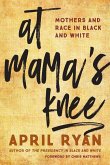African American Views of the Japanese reveals a page of history long ignored. In black America, Japanese were not always known for racist remarks, Sambo images, and discriminatory hiring practices. Once, thousands of African Americans thought of the Japanese as "champions of the darker races." Ordinary urban ghetto dwellers, share-croppers, and tenant farmers looked to the Land of the Rising Sun for salvation. Some of the greatest leaders in the fight for equal rights and greater freedoms--such as W. E. B. Du Bois, Monroe Trotter, Mary Church Terrell, Ida Wells Barnett, George Schuyler, A. Philip Randolph, and James Weldon Johnson--saw allies in the struggle for equality. The Afro-centric Marcus Garvey shared his stage with the Japanese. In his teachings, Elijah Muhammad taught that the original black man was Asian and acknowledged Japan's role as leader. Here Reginald Kearney examines the role played by Japan and its people in the dreams of prosperity for many African Americans. He also uncovers the shock many blacks felt upon learning that this high regard for the Japanese had been betrayed by discriminatory remarks and actions. But overall Kearney remains optimistic that the African American-Japanese rift can be mended.








